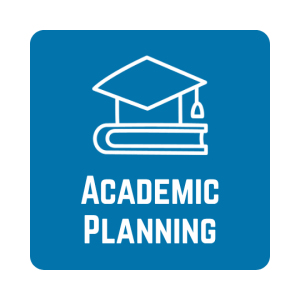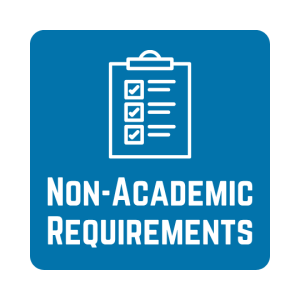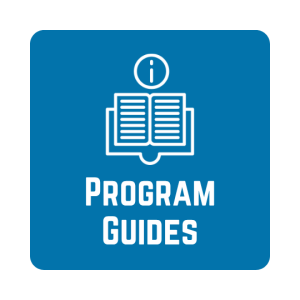Academic Planning

| 
| 
| 
| 
| 
| 
|
Academic planning is an essential part of your studies at the Milken Institute School of Public Health. The tools and resources below will help you understand your degree requirements, map out your path to graduation, and make informed course decisions each semester. We're here to help you ROCK!
R
Research your program requirements, university policies, and available academic opportunities
O
Outline your schedules with a Four-Year Plan and consider your post-graduation goals.
C
Communicate with advisors at least once per semester to ensure you're on-track to graduate.
K
Keep track of your degree requirements, and stay on top of assignments and academic deadlines.
Major, Minor, & Concentration Declaration
Interested in adding a GWSPH program? Click the button to learn more about declaring a major, minor, or concentration at the Milken Institute School of Public Health!
GWSPH Dual Degrees
GWSPH offers a robust selection of dual degree programs, allowing undergraduate students to get a jumpstart on more advanced degrees. Save time and money on an MPH or MS by making the most of your undergraduate tuition dollars. Click the button to learn more!
Understanding Your Program
- GW Bulletin
The GW Bulletin is the University’s official contract with students, listing all academic requirements, regulations, and policies in effect for your matriculation year. Always refer to the Bulletin to confirm degree rules and university policies.
- Undergraduate Student Handbook
The SPH Undergraduate Student Handbook serves as a repository for policies and procedures that govern The Milken Institute School of Public Health (GWSPH) at The George Washington University (GW) and students’ academic rights and responsibilities. This handbook applies to all undergraduate students in the GWSPH, including all majors and minors. Students are expected to be knowledgeable about these policies and procedures. In addition, the handbook provides information and references about GWSPH and its academic programs.
The Undergraduate Student Handbook is secondary to the University Bulletin, a complete source of university-wide information. The university and GWSPH reserve the right to change courses, programs, and fees, or to make other administrative and policy/procedure changes deemed necessary or desirable, giving advance notice of these changes when possible. This handbook is updated on an annual basis and can be found on the Milken Institute School of Public Health website.
- SPH General Requirements
All degree-seeking SPH undergraduate students must also complete the following non-academic requirements:
- Professional Enhancement
- Academic Integrity Quiz
- CITI Training
For more information on each of these requirements, click here.
- Writing & GPAC Requirements
All GW undergraduate must complete the Writing in the Disciplines requirements and Tier One of the University's General Education Curriculum (GPAC). GPAC courses are designed to help students build critical thinking, communication, and reasoning skills across disciplines that they will use in their studies, careers, and beyond.
In addition to the Writing in the Disciplines requirements, students must satisfy the following requirements with courses from the GPAC Course List as part of their general education:
- Quantitative Reasoning: 1 course in mathematics or statistics
- Scientific Reasoning: 1 course in natural and/or physical laboratory sciences
- Critical Thinking in the Social Sciences: 2 courses
- Critical Thinking in the Humanities: 1 course
- Oral Communication: 1 approved course with an oral communication component
- BS Public Health students must select an Oral Communication course from the pre-approved list in their Program Guide (see Appendix B).
Additional Notes
- Courses taken for GPAC may also count toward program prerequisites or major requirements, as long as they are included on the approved GPAC course list.
- Students in the BS Exercise Science and BS Nutrition programs have multiple GPAC requirements built into their core curriculum. Refer to the relevant Program Guide or your DegreeMAP for more information.
- Pre-matriculation transfer credits may fulfill GPAC requirements. However, once you have matriculated to GW, all remaining GPAC courses must be taken in residence at GW.
- Program Requirements
Your Program Guide outlines all degree requirements for your major, including prerequisites, core courses, GPA policies, and guided elective options. You are bound to the Program Guide from the academic year in which you formally declare your major. Key points to remember:
- Students must earn a C- or higher in all core and prerequisite courses.
- Prerequisites must be completed before taking the related core course; concurrent enrollment is not permitted under any circumstances.
- All GWSPH major core requirements must be completed at GW.
- You must maintain the GPA specified in your Program Guide to earn your degree.
- Contact your advisor if you believe previous coursework fulfills a requirement.
Core Requirements
There are four undergraduate majors at the School of Public Health, each with its own unique major-specific core requirements. Students must complete all prerequisite and core requirements with a C- or higher as outlined in their Program Guide.
- Guided Electives
Guided Electives are courses that have been identified as highly relevant to your program. They offer a structured way to tailor your degree toward your specific career goals or academic interests, while ensuring your coursework remains connected to your major’s focus areas.
These pre-approved courses can be found in the University Bulletin and at the end of your Program Guide. Guided Elective courses must be selected from these lists. Additional restrictions may apply. All policies are detailed in the SPH Undergraduate Student Handbook, University Bulletin, and your Program Guide. Always defer to these resources for the most up-to-date information.
Click below to review approved Guided Electives for your major.
- General Electives
General Electives give you even more flexibility to personalize your academic experience. You may use these credits to explore other disciplines of interest, pursue a minor or second major, or take additional Guided Elective courses that align with your goals.
General Electives totals may vary depending on your major and any additional areas of study. General Electives may be chosen from the Guided Electives list, or from any other undergraduate course at GW so long as it is open to you and applicable to your degree. University and School restrictions may apply. Refer to the SPH Undergraduate Student Handbook, University Bulletin, and your Program Guide for more information.
Planning Your Studies
- Undergraduate Advising
At the SPH Undergraduate Advising Office, we’re here to guide and support you throughout your academic journey. While students are ultimately responsible for their course decisions and tracking their degree requirements using their Program Guide and DegreeMAP, we’re your partners in:
- Creating and updating your Four-Year Plan
- Planning study abroad opportunities
- Exploring majors, minors, and concentrations
- Understanding policies and procedures
- Navigating academic challenges and life transitions
- Staying on track for graduation
Students are strongly encouraged to meet with an advisor at least once per semester.
- Four-Year Plans
Every SPH student must create a Four-Year Plan outlining when and how they’ll complete their degree requirements.
Why it matters:
- Helps ensure prerequisites and core courses are completed on time
- Keeps you on track for graduation
- Supports your advisor in helping you plan effectively
Getting started:
- Use the Four-Year Plan Template.
- Use your respective Program Guide and the GW Bulletin to confirm course sequencing and prerequisites.
- Schedule an appointment with your advisor to review and finalize your plan.
- Update your plan anytime you change your goals, major, or course schedule.
Reminder: It’s the sole responsibility of each student to stay in touch with their advisors and to confirm that they will remain on-track towards graduation in the event that they adjust their approved Four-Year Plan.
- Course Offerings by Major
Use the tables below to see which of your required courses are typically offered each semester. This information is based on past schedules and projected rotations in the Course Carousel. Please note that offerings may change from year to year.
If a course is not available in the term listed, please meet with your academic advisor to adjust your Four-Year Plan.
Offerings are subject to change. Always confirm availability in the Schedule of Classes before registering.
Course
Title
Semester(s) Offered
PUBH 1010
First-Year Experience in Public Health
Fall, Spring
PUBH 1101
Introduction to Public Health
Fall, Spring
EXNS 1103
Professional Foundations in Exercise Science
Fall
EXNS 2116
Exercise and Health Psychology
Fall, Spring
EXNS 2119
Introduction to Nutrition Sciences
Fall, Spring, Summer
EXNS 2210
Applied Anatomy & Physiology I & Lab
Fall, Spring
EXNS 2211
Applied Anatomy & Physiology II & Lab
Fall, Spring
EXNS 3110
Field Experience in Exercise & Nutrition Sciences
Fall, Spring, Summer
EXNS 3111W
Exercise & Nutrition Sciences Research Methods
Fall, Spring
EXNS 3311
Exercise Physiology I & Lab
Fall
EXNS 3312
Exercise Physiology II & Lab
Spring
EXNS 3313
Kinesiology
Fall
PSYC 1001
General Psychology
Fall, Spring
BISC 1111 Introductory Biology: Cells and Molecules Fall Course
Title
Semester(s) Offered
PUBH 1010
First-Year Experience in Public Health
Fall
PUBH 1101
Introduction to Public Health & Health Services
Fall, Spring
PUBH 1142
Introduction to Health Data Science
Spring
PUBH 2110
Public Health Biology
Fall, Spring
PUBH 2140
Foundations of Research Methods
Fall, Spring
PUBH 2142
Introductory Biostatistics
Fall, Spring
PUBH 2242
Natural Language Processing for Healthcare
Fall
PUBH 3131
Epidemiology
Fall, Spring
PUBH 3232
Health Data Mining
Fall
PUBH 3242
Health Data Visualization
Fall, Spring
PUBH 4202
Bioinformatics Algorithms and Data Structures
Spring
STAT 2183
Intermediate Statistics Lab/Packages
Fall, Spring
STAT 4157
Introduction to Mathematical Statistics I
Fall, Spring
Course
Title
Semester(s) Offered
PUBH 1010
First-Year Experience in Public Health
Fall
PUBH 1101
Introduction to Public Health & Health Services
Fall, Spring
CHEM 1110
Fundamentals of Chemistry
Fall, Spring
EXNS 1109
Professional Foundations in Nutrition
Fall
EXNS 2119
Introduction to Nutrition Sciences
Fall, Spring, Summer
EXNS 2120
Assessment of Nutritional Status
Fall
EXNS 2123
Nutrition and Chronic Disease
Fall
EXNS 2124
Nutrition throughout the Lifecycle
Spring
EXNS 2210
Applied Anatomy & Physiology I & Lab
Fall, Spring
EXNS 2211
Applied Anatomy & Physiology II & Lab
Fall, Spring
EXNS 3111W
Exercise and Nutrition Science Research Methods
Fall, Spring
EXNS 3120
Experiences in Community Nutrition
Fall
EXNS 4199
Metabolism in Exercise and Nutrition Sciences
Spring
PSYC 1001
General Psychology
Fall, Spring
BISC 1111 Introductory Biology: Cells and Molecules Fall Concentration-Related Courses
Course Number
Course Title
Semester(s) Offered
EXNS 1114
Community Nutrition
Spring
EXNS 2118
Sport and Nutrition
Spring
EXNS 2122
Food Systems in Public Health
Fall
EXNS 2126W
International Nutrition
Spring
EXNS 2127
Introduction to Food Policy
Fall
EXNS 3114W
Cultivating Food Justice in Urban Food Systems
Spring
Course
Title
Semester(s) Offered
PUBH 1010
First-Year Experience in Public Health
Fall
PUBH 1101
Introduction to Public Health & Health Services
Fall, Spring
PUBH 2110
Public Health Biology
Fall, Spring
PUBH 2112
Principles of Health Education & Health Promotion
Fall, Spring
PUBH 2140
Research Methods Foundations
Fall, Spring
PUBH 2142
Introduction to Biostatistics for Public Health
Fall, Spring
PUBH 3130
Health Services Management & Economics
Fall, Spring
PUBH 3131
Epidemiology
Fall, Spring
PUBH 3132
Health & Environment
Fall, Spring
PUBH 3133
Global Health & Development
Fall, Spring
PUBH 3135W
Health Policy
Fall, Spring
PUBH 4140W
Senior Seminar
Fall, Spring
- Field Experience & Internships
Field Experience
As an experiential learning requirement, EXNS 3110 Field Experience gives juniors and seniors in the BS Exercise Science and BS Nutrition programs the opportunity to apply classroom learning through hands-on work in professional settings such as clinics, wellness programs, research sites, and government organizations.
Students typically complete 100 hours (2 credits) at one site, though additional credits and hours may be available. To be eligible, students must have earned at least 60 credits and completed EXNS 3311 with a grade of C- or higher.
Because the placement approval process and site agreements can take several months (especially with hospitals or large organizations), students are strongly encouraged to plan at least one semester in advance. During the experience, students will complete academic assignments and are expected to represent GW professionally while gaining valuable real-world experience. All placements must be approved by the Field Experience Director before any hours are completed. Approval is not guaranteed and hours completed prior to formal approval will not count towards your experiential hours.
For more information, please contact Michelle Stevens, Field Experience Director, at mmsteven
 gwu [dot] edu (mmsteven[at]gwu[dot]edu).
gwu [dot] edu (mmsteven[at]gwu[dot]edu).Internship for Credit
The CCAS Elective Internship program allows students to earn elective credit for an approved internship while connecting their professional experience to their studies at GW. Students can register for 1 to 3 credits, depending on the number of internship hours completed. Throughout their internship, they'll complete academic assignments alongside their fieldwork. During the fall or spring, the course is included in full-time tuition (up to 18 credits); in the summer, tuition is charged per credit hour.
To apply, students must secure an internship, identify a full-time faculty advisor, and submit the CCAS 2154 application (including approvals from both the internship supervisor and faculty advisor) by the program's specified deadline. For more information on eligibility and the application process, please click here.
- DegreeMAP
DegreeMAP is GW’s official tool for tracking academic progress toward your degree. It helps you and your advisor confirm completed, in-progress, and planned coursework.
You can use DegreeMAP to:
- View remaining degree and elective requirements
- Test out “What If” scenarios for potential new majors or minors
- Calculate your projected GPA
Tips for Use:
- Review your DegreeMAP before and after registration each semester.
- Expect your degree progress to show slightly below 100% in your final semester--this is normal while your remaining courses are still in-progress!
- Contact your advisor if you notice any errors or missing requirements.
- If a course isn’t applying to the correct requirement:
- Email SPHundergrad
 gwu [dot] edu with details about the course.
gwu [dot] edu with details about the course. - Include any written approval (from an instructor or advisor) for exceptions approved outside of your program guide.
- Email SPHundergrad
- Plan Ahead in GWeb
Use the Plan Ahead feature in GWeb to build and save multiple registration semester plans before your registration time opens. Use Plan Ahead to:
- Create up to five clear, drafted semester plans each semester.
- Register more efficiently by quickly adding all the courses in your chosen Plan.
- Get advisor feedback on your schedule options prior to registration to minimize confusion.
- Identify backup course options in case a class fills or becomes waitlisted.
- Verify prerequisites and scheduling conflicts in advance.
- Create up to five clear, drafted semester plans each semester.
- Blackboard
Blackboard is GW’s official course management system, where you can access materials, assignments, and announcements.
To access Blackboard:
- Visit blackboard.gwu.edu
- Log in with your GW UserID and password
Courses appear the day after they are added in GWeb.
Need help?
Milken Undergraduate Blackboard Student Resources Page
The Milken Undergraduate Blackboard Student Resources page is your go-to hub for up-to-date information and support throughout your time at GWSPH. Located in the Organizations tab within Blackboard, this page is a living resource that is regularly updated with helpful information, announcements, and more.



